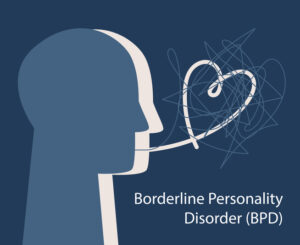I’ve been diagnosed with BPD. What Now?
I’ve received a diagnosis of borderline personality disorder (BPD). How do I cope with this? What do I do now? Can it be cured? Do I need medication?
Receiving a diagnosis of BPD can be both very overwhelming and a relief at finally understanding what you may be struggling with. The first step is to get treatment and seek out psychotherapy from a qualified therapist.
However, I have often heard my clients state that they delay treatment as they struggle to find someone to treat them due to the stigma attached to the diagnosis as well as the limited training and individuals interested in treating the disorder. This just reinforces the underlying feelings of abandonment and rejection that individuals with BPD struggle with. In addition, individuals that struggle with BPD are often very fearful of others, mistrusting and overwhelmed. They struggle to cope with these feelings and may act out (drinking, excessive fighting, self-harming behaviour, attempted suicide) as a result thus impacting on their ability to gain treatment.
So what actually is BPD and why do I need the treatment?
What is BPD?
BPD is a personality disorder that is characterised by pervasive unstable interpersonal relationships and emotional instability. Essentially it can be viewed as a rupture in an individual’s attachment process and is largely characterised by a fear of abandonment and rejection that is incredibly hard to process and cope with. Psychotherapy can assist in processing these difficult feelings and help minimise and contain the acting-out behaviour described above.
Individuals diagnosed with BPD may have the following symptoms:
- A pattern of unstable relationships,
- Unstable moods with frequent outbursts,
- A constant fear of rejection and abandonment,
- The above often results in efforts to avoid any perceived rejection and\or abandonment,
- No sense of belonging,
- Poor sense of identity and low self-esteem,
- Constant relationship instability – difficulty making relationships and maintaining them
- Impulsive behaviour,
- Feelings of chronic emptiness, often described as feeling numb,
- Recurrent suicidal thoughts and/or attempts as well as recurrent attempts of self-harm,
Individuals with BPD can often also experience numerous other mental health difficulties such as depression and anxiety, post traumatic stress disorder (PTSD), substance abuse disorders as well as significant relationship difficulties, as discussed.
What are the causes of BPD?
This question raises the whole nature vs nurture debate. There is a strong correlation between trauma and borderline personality disorder with some researchers and psychologists arguing that BPD should be known as complex post-traumatic stress disorder (C-PTSD).
BPD is also known as an attachment disorder and thus your primary attachment with your caregiver (your mother, grandmother, father etc) plays a role in the development of borderline personality disorder.
However, it is important to remember that it is a complex disorder characterised by multiple causes.
There is no cure for BPD – it is like the foundation of a house, once there it’s there. But with ongoing treatment and management as well as coping skills, individuals with a diagnosis of BPD can go on to live very fulfilling lives and have meaningful interpersonal relationships.
Trauma and BPD
Trauma erodes our very foundation and the core of our being as individuals. It strips us of our boundaries and leaves us feeling unsafe and terrified. Often individuals with BPD struggle with severe traumatic incidents and it is not uncommon for them to have experienced childhood trauma either in the form of abuse or neglect and unfortunately sexual abuse. Thus, individuals that struggle with BPD can benefit from more trauma-focused psychotherapy and repairing their sense of self and attachments.
Treatment
Marsha Linehan developed a form of psychotherapy known as Dialectical Behavioural Therapy or commonly called DBT. DBT has become the mainstay treatment for individual’s struggling with borderline personality disorder. It is typically found in hospital settings in a form of group psychotherapy, but individual practitioners are also trained and qualified in it and can provide it in individual settings.
DBT is a skills-based intervention, and individuals are taught various skills to assist them with coping. These include distress tolerance skills, interpersonal relationship skills as well as mindfulness.
Psychotherapy for individuals with BPD can be challenging and overwhelming. It is often a more longer-term approach than just a few sessions and involves some challenging interpersonal dynamics. It is important that you discuss any perceived rejections from your therapist with them to try and resolve the difficulties and grow.
If you have just been diagnosed with BPD on it’s own, it is unlikely that you will have to have medication as psychotherapy is the best form of treatment. Some people that have BPD do however, benefit from mood stabilisers and other medication to assist with the mood fluctuations. You may also benefit from antidepressants if you also struggle with depression. It is always important to discuss medication with your doctor and/or psychiatrist.
Dr Pauline Baleta treats borderline personality disorder and is trained in DBT as well as psychodynamic psychotherapy which when combined, provides the client with a supportive, collaborative approach to managing their symptoms whilst dealing with the underlying trauma and ruptures in attachment. To make an appointment with Dr Pauline Baleta try Online Booking. Alternatively, you can call Vision Psychology Brisbane on (07) 3088 5422.


